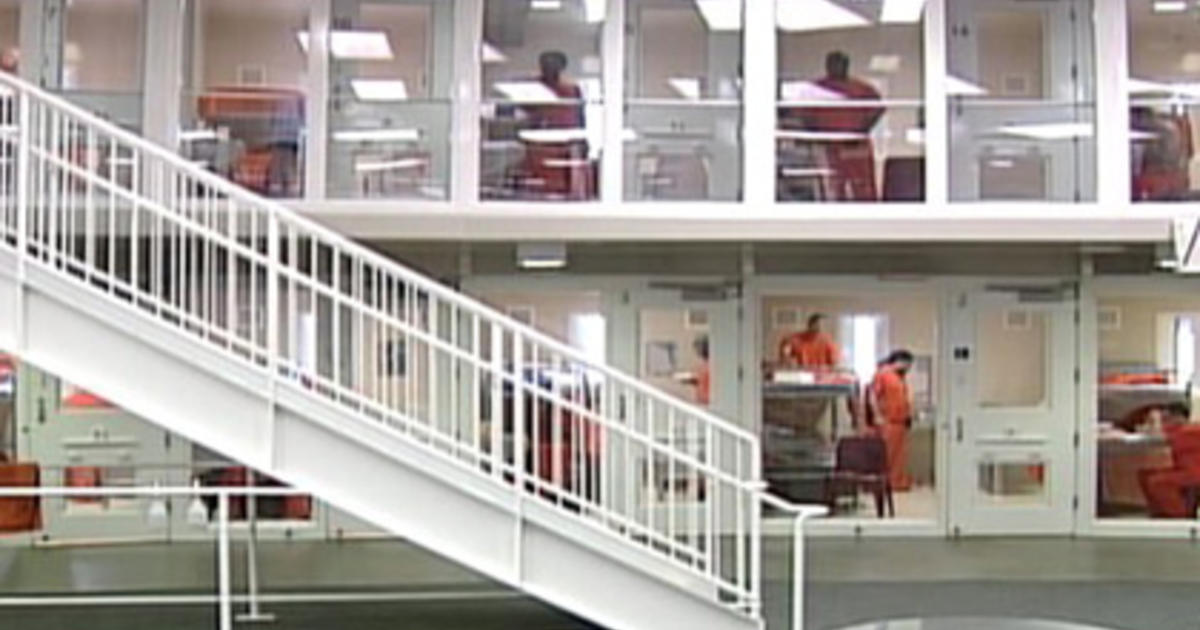Beat The Heat: Tips On Staying Cool
SAN FRANCISCO (CBS) -- Hot and dry weather was forecast for much of the San Francisco Bay Area and Monterey Bay area through Tuesday, according to the National Weather Service, due to a strong ridge of high pressure over Northern California.
The warmest day was expected to be Monday when high temperatures were forecast to exceed 100 degrees in some of the warmest inland valleys.
RELATED RESOURCES: Bay Area Cooling Centers List
CBS 5 WeatherCenter: Current Temperatures, Forecast For Your Community
Heat waves can be dangerous, according to experts at the California Dept. of Public Health.
The experts warn that older people are at the highest risk. People normally cool their bodies by sweating, but under some conditions, sweating isn't enough. Very high body temperatures may damage the brain or other vital organs. Some conditions that can limit the ability to regulate temperature include old age, obesity, fever, dehydration, heart disease, poor circulation, sunburns, drug and alcohol use. Hot weather activity, whether on the playing field or the construction site, must be done in a way to aid the body's cooling mechanisms and prevent heat-related illness.
Protecting Against Heat Injuries
To protect your health when temperatures are extremely high, the CDPH suggests:
Drink Plenty of Fluid - Increase your fluid intake regardless of your activity level. During heavy exercise in hot weather, drink 2-4 glasses (16-32 ounces) of cool fluids each hour. Consult with your doctor if you have been prescribed a fluid-restricted diet or diuretics. During hot weather, you will need to drink more liquid than your thirst indicates. This is especially true for those over 65 years of age. Avoid very cold beverages to prevent stomach cramps or drinks containing alcohol, which will actually cause you to lose more fluid.
Replace Salt and Minerals - Heavy sweating removes salt and minerals from the body, which are necessary for your body and must be replaced. The best way to replace salt and minerals is to drink fruit juice or a sports beverage during exercise or any work in the heat. Do not take salt tablets unless directed by your doctor. If you are on a low-salt diet, ask your doctor before changing what you eat or drink.
Wear Appropriate Clothing and Sunscreen - Wear as little clothing as possible when you are at home. Choose lightweight, light-colored, loose-fitting clothing. In the hot sun, a wide-brimmed hat will keep the head cool. Sunburn affects your body's ability to cool itself and causes a loss of body fluids. It also causes pain and damages the skin. A variety of sunscreens are available to reduce the risk of sunburn. Check the sun protection factor (SPF) number on the label of the sunscreen container. Select SPF 15 or higher and follow package directions.
Pace Yourself - If you are unaccustomed to working or exercising in hot weather, start slowly and pick up the pace gradually. If exertion in the heat makes your heart pound and leaves you gasping for breath, stop all activity, get into a cool or shady area, and rest, especially if you become lightheaded, confused, weak, or feel faint.
Stay Cool Indoors - The most efficient way to beat the heat is to stay in an air-conditioned area. If you do not have an air conditioner or evaporative cooling unit, consider a visit to a shopping mall or public library for a few hours. Or you can call your local Public Health Department to see if they have established any locations as "Cooling Centers." Do not rely on electric fans as your primary cooling device during a heat wave. When the temperature is in the high 90s or higher, a fan will not prevent heat-related illness. A cool shower or bath is a more effective way to cool off.
Schedule Outdoor Activities Carefully - If you must be out in the heat, plan your activities so that you are outdoors either before noon or in the evening. While outdoors, rest frequently in a shady area.
Use a Buddy System - When working in the heat, monitor the condition of your coworkers and have someone do the same for you. If you are 65 years of age or older, have a friend or relative call to check on you twice a day during a heat wave. If you know anyone in this age group, check on them at least twice a day.
Monitor Those at High Risk - Those at greatest risk of heat-related illness include:
- infants and children up to four years of age;
- people who overexert during work or exercise;
- people 65 years of age or older;
- people who are ill or on certain medications; and
- people who are overweight.
If you or someone you know is at higher risk, it is important to drink plenty of fluids; avoid overexertion; and get your doctor or pharmacist's advice about medications taken for high blood pressure, depression, nervousness, mental illness, insomnia, or poor circulation.
Adjust to the Environment - Be aware that any sudden change in temperature, such as an early summer heat wave, will be stressful to your body. You will have a greater tolerance for the heat if you limit your physical activity until you become accustomed to the heat. If traveling to a hotter climate, allow several days to become acclimated before attempting any vigorous exercise, and work up to it gradually.
Use Common Sense - Avoid hot foods and heavy meals; they add heat to your body. Do not leave infants, children, or pets in a parked car. Bring your pets indoors with you to protect them. Dress infants and young children in cool, loose clothing and shade their heads and faces with hats or an umbrella. Limit sun exposure during the midday hours and in places of potential severe exposure, such as beaches. Ensure that infants and children drink adequate amounts of liquids. Give your outdoor animals plenty of fresh water, leave the water in a shady area, and consider wetting the animal down.
Heat Stroke and Heat Exhaustion
Two common problems are heat stroke and heat exhaustion. Heat stroke occurs when the body becomes unable to control its temperature. The body's temperature rises rapidly, the sweating mechanism fails, and the body is unable to cool down. Body temperature may rise to 106°F or higher. Heat stroke can cause death or permanent disability if emergency treatment is not given. Heat exhaustion is the body's response to an excessive loss of water and salt contained in sweat. Those most prone to heat exhaustion are elderly people and people working or exercising in a hot environment.
Warning signs of heat stroke vary but may include:
- an extremely high body temperature (above 103°F, orally);
- unconsciousness;
- dizziness, nausea, and confusion;
- red, hot, and dry skin (no sweating);
- rapid, strong pulse; and
- throbbing headache.
Warning signs of heat exhaustion vary but may include:
- heavy sweating;
- muscle cramps;
- weakness;
- headache;
- nausea or vomiting; and
- paleness, tiredness, dizziness.
What to Do
If you see any of these signs, you may be dealing with a life-threatening emergency. Have someone call for immediate medical assistance while you begin cooling the victim:
- Get the victim to a shady area.
- Cool the victim rapidly using whatever methods you can. For example, immerse the victim in a tub of cool water; place in a cool shower; spray with cool water from a garden hose; sponge with cool water; or if the humidity is low, wrap the victim in a cool, wet sheet and fan him or her vigorously.
- Monitor body temperature, and continue cooling efforts until the body temperature drops to 101-102°F.
- If emergency medical personnel are delayed, call the hospital emergency room for further instructions.
- Do not give the victim alcohol to drink.
- Get medical assistance as soon as possible.
Sometimes a victim's muscles will begin to twitch uncontrollably as a result of heat stroke. If this happens, keep the victim from injuring himself, but do not place any object in the mouth and do not give fluids. If there is vomiting, make sure the airway remains open by turning the victim on his or her side.
These self-help measures are not a substitute for medical care but may help you recognize and respond promptly to warning signs of trouble. Your best defense against heat-related illness is prevention. Staying cool and making simple changes in your fluid intake, activities, and clothing during hot weather can help you remain safe and healthy.



